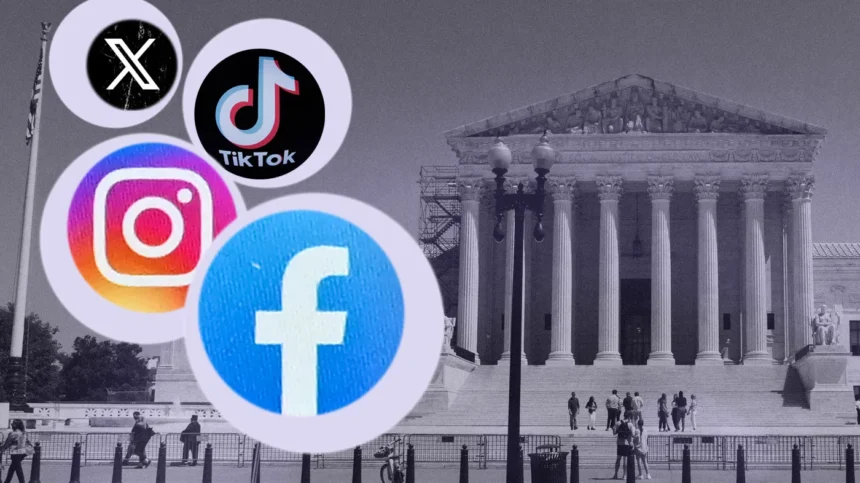The US Supreme Court vacated decisions on Texas and Florida social media laws, emphasizing that content moderation by platforms is protected by the First Amendment. Let’s break down the key points from the Supreme Court’s ruling, its implications, and what might come next.
What’s Happening & Why This Matters
The Supreme Court, led by a majority opinion from Justice Elena Kagan, criticized Texas’s law aimed at balancing speech on social media. The majority decision stated it is unlikely to withstand First Amendment scrutiny. The Texas law intended to prevent large social media companies from moderating posts based on user viewpoints, aiming to protect conservative voices.
Justice Kagan pointed out that the government should not determine the balance of private expression. The ruling vacated decisions from two courts: the US Court of Appeals for the 5th Circuit, which had upheld the Texas law, and the US Court of Appeals for the 11th Circuit, which had blocked a similar law in Florida.
The Supreme Court’s decision to remand these cases back to the lower courts stemmed from a need for a more thorough analysis. The justices noted that lower courts did not fully consider how these laws would affect various online platforms beyond the largest social media companies.
- Texas Law: Aimed to prevent viewpoint-based moderation by social media platforms.
- Florida Law: Prohibited banning politicians and required consistent enforcement of content standards.
- Supreme Court’s Critique: Emphasized the necessity for a detailed review of the laws’ broad impacts on different types of online services.
- Implications: This ruling underscores the protection of content moderation under the First Amendment, which may influence future legislation and court cases involving online speech and platform regulation.
TF Summary: What’s Next
The Supreme Court’s decision is important in the ongoing debate over social media regulation and free speech. The lower courts must now conduct a comprehensive analysis of the laws’ broader implications. This will likely lead to more nuanced discussions and potential legislative adjustments to balance free speech with the responsibilities of online platforms.
The remanded cases will set important precedents for how state laws can regulate social media and other digital platforms. As these cases unfold, stakeholders from tech companies, lawmakers, and advocacy groups will closely watch to understand the evolving landscape of digital speech and regulation.
— Text-to-Speech (TTS) provided by gspeech


